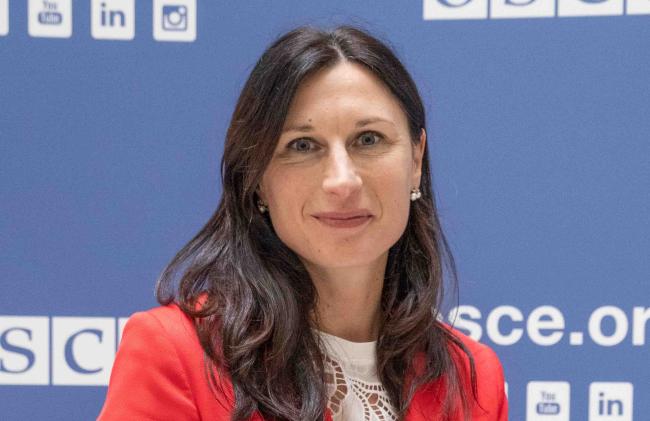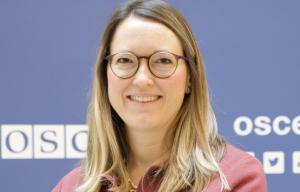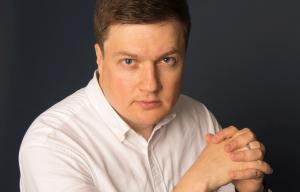Nora Vanaga
Project Support Officer - OSCE Secretariat

Please tell us about your professional background. Where have you worked before coming to the OSCE, and what were your responsibilities?
I worked at the Ministry of Defence of Latvia dealing with defence planning issues, EU defence policy initiatives, and the OSCE. For seven years, I held the position of senior researcher at the Centre for Security and Strategic Research at the National Defence Academy of Latvia, where I focused on small states’ defence strategies, EU defence policies, conflict resolution, and arms control. I have always been passionate about security-related topics and focused my academic and professional careers on these issues. Since 2019 I was working at the Conflict Prevention Centre/Forum for Security Co-operation (CPC/FSC) Support Unit that deals with projects on Small Arms and Light Weapons/ Stockpiles of Conventional Ammunition (SALW/SCA), leading the project on rocket fuel disposal, establishing FSC E-Learning Programme and developing new projects in Central Asia.
What is your academic background, and how does it align with the career you have developed?
I have always been curious and eager to learn. I decided to pursue studies in the field of political science at the University of Latvia at the same time I was working at the Ministry of Defence. I ended up getting a doctoral degree in security studies, which is highly relevant to my position now. The experiences of being a civil servant and a senior researcher gave me unique opportunities to delve into varied security topics at the academic level while keeping the policy-makers’ perspective. This certainly gives me great insights and a unique perspective on my current job! The practical relevance of my research has been always a key element in my work. For instance, I was delighted when the opportunity presented itself, and I was given a chance to develop an e-learning programme on all eight FSC topics, thus letting me work on a knowledge product that now plays a crucial role in onboarding new delegates and even new employees of OSCE Executive structures.
Where are you based now, and what do you like most about your current job at the OSCE?
Since 2024, I have taken up the new role of Project Support Officer at the CPC/FSC Support Unit in leading the SALW/SCA team at the Secretariat and SALW/SCA politico-military officers’ network, covering the whole OSCE region. I oversee the SALW/SCA Assistance Projects portfolio (approx. 19 projects), which implies significant responsibility in supporting resource mobilization and providing programmatical and technical support. Naturally, I am not alone in this effort – within our team, we have three sub-teams focusing on regions – Eastern Europe, South-Eastern Europe, and Central Asia. Most projects are implemented through OSCE field operations by politico-military officers, and very few are run by the Secretariat.
What advice would you give to applicants considering a career in international civil service?
My advice to anyone considering international civil service would be – despite the heavy competition and possible disappointments during the application process for any international organization, do not give up! Working as an international civil servant and at the OSCE is absolutely worth it! I find the OSCE to be an essential platform where very different countries engage and come up with consensus on confidence building measures on important issues such as security, cyber, environmental, gender and much more. Especially, in the field of SALW/SCA it is delightful to see the impact on the ground, strengthening participating States’ capacities in life-cycle management of SALW and SCA, combatting illicit trafficking of SALW, ammunition and explosives as well as in SALW control. Considering the wide spectrum of topics that the OSCE covers, chances are that anyone working here will have the experience of a lifetime.

